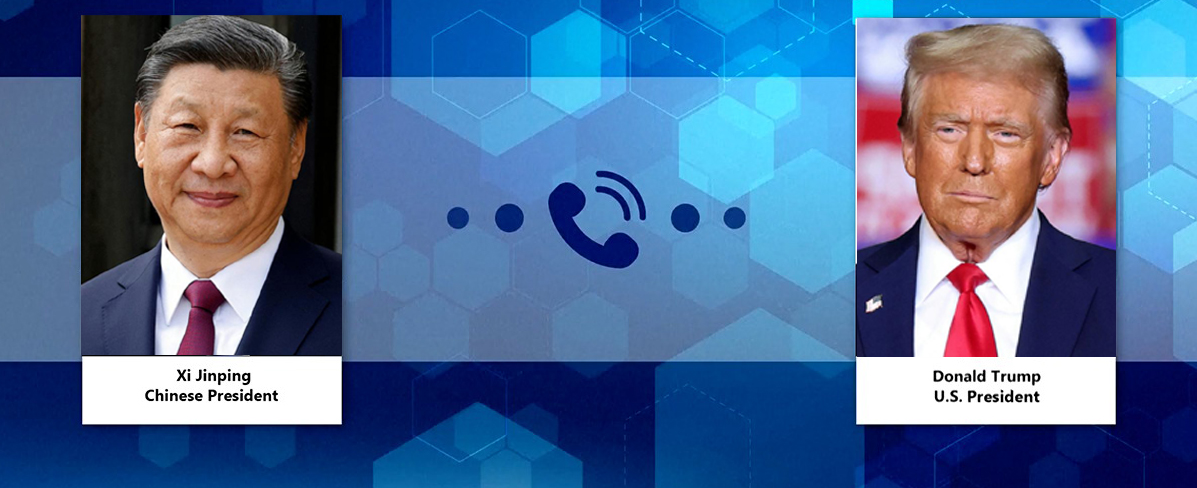
Between Historical Memory and Looking to the Future
The Call Between Xi and Trump Highlights the Depth of Sino-American Relations
Nabaz Mustafa
In one of the phone calls between Chinese President Xi Jinping and his American counterpart, Donald Trump, a pivotal point emerged, highlighting the depth of historical relations between the two countries, and simultaneously affirming the importance of recalling the past to build a better future. President Xi's remarks emphasized that China and the United States were not merely ordinary nations, but allies who fought "shoulder to shoulder" during one of the darkest periods of human history: World War II.
This recollection is not just a historical narrative; it is an affirmation of a solid foundation of cooperation and shared sacrifice that bound the two peoples. This was clearly manifested in China's celebrations of the 80th anniversary of the victory of the Chinese People's War of Resistance against Japanese Aggression and the World Anti-Fascist War. These celebrations were not merely a national occasion, but a clear invitation to honor the historical partnership, as families of the American "Flying Tigers"—that legendary air unit which provided vital support to China—were invited to witness the magnificent parade from Tiananmen Rostrum.
This gesture is not fleeting; it is a clear message from President Xi that "the Chinese people will not forget the valuable support from the United States and other anti-fascist Allied nations for China's War of Resistance." It is a testament that the collective memory of the Chinese nation holds deep appreciation for those shared sacrifices.
The deeper meaning President Xi sought to convey in this call transcends mere recounting of events. His statement, "Honoring fallen heroes and remembering history is essential for valuing peace and creating a better future," summarizes a forward-looking philosophy. It is not an invitation to dwell in the past, but to draw inspiration from its lessons. Remembering shared sacrifices and honoring fallen heroes is not just a moral duty, but a cornerstone in appreciating the value of the peace we enjoy today.
In the context of contemporary international relations, characterized by complex challenges and increasing competition, this discourse reminds us that China and the United States have a long history of effective cooperation in confronting global threats. It opens the door to the possibility of building a future where differences are overcome by focusing on common interests and the values of cooperation that proved effective in the past.
With these words, President Xi Jinping was not merely speaking of a bygone history, but was drawing a roadmap for a future that can be built on mutual respect and cooperation, inspired by the bright pages of a true partnership between the two peoples.
This discourse can be considered an integral part of the broader framework of "Xi Jinping's Initiative for Dialogue among Civilizations" or the "Global Civilization Initiative" (GCI), which calls for valuing common values among different civilizations and recognizing civilizational diversity as a source of human progress. When President Xi refers to the "World Anti-Fascist War" and the mutual support between China, the United States, and the Allied nations, he emphasizes shared human values such as resisting injustice, sacrificing for peace, and appreciating freedom that united these nations regardless of their cultural or political differences at that time.
The initiative emphasizes the importance of drawing lessons from history to foster peace and understanding. President Xi's statement that "honoring fallen heroes and remembering history is essential for valuing peace and creating a better future" perfectly aligns with this principle. He does not view the past as a point of contention, but as a point of convergence upon which future relations can be built.
The Global Civilization Initiative aims to transcend the "clash of civilizations" towards a "dialogue among civilizations." Recalling the period of alliance between China and the United States is an attempt to remind that even in times of global crises, civilizations can cooperate effectively to achieve common goals, thus reinforcing the idea of the possibility of current and future cooperation instead of conflict.
This initiative is a fundamental pillar in Xi Jinping's vision for building a "community with a shared future for humanity." By highlighting positive historical ties, he seeks to enhance understanding and trust between nations, which is essential for building this harmonious global community.
In short, this part of the discourse does not only focus on bilateral relations between China and the United States but uses them as a model for how historical memory and recognition of past cooperation can contribute to fostering mutual understanding and valuing peace, which are the core objectives of the Dialogue among Civilizations initiative
